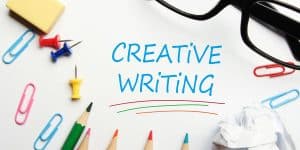Writing is an essential skill that permeates every aspect of our lives. Whether you are a student, a professional, or simply someone who enjoys expressing their thoughts on paper, mastering the art of writing techniques can elevate your work to new heights. In this comprehensive guide, we will explore various writing techniques that will help you improve your craft and captivate your readers.
The Importance of Mastering Writing Techniques
Mastering writing techniques is crucial for several reasons. Firstly, it allows you to effectively communicate your ideas and thoughts with clarity and precision. By understanding different writing techniques, you can tailor your writing style to suit your purpose and audience, ensuring that your message is conveyed effectively.
Secondly, mastering writing techniques enhances your credibility as a writer. Whether you are writing an academic paper, a business report, or a creative piece, employing the appropriate writing techniques demonstrates your competence and professionalism. It shows that you have invested time and effort into honing your skills, making your work more compelling and persuasive.
Lastly, mastering writing techniques opens up a world of creativity and self-expression. Writing is not merely a means of communication; it is an art form. By mastering writing techniques, you can unleash your imagination, create vivid worlds, evoke emotions, and inspire your readers. It allows you to leave a lasting impact and connect with others on a profound level.
Understanding Different Writing Styles
Writing styles encompass a broad range of approaches and techniques that writers use to convey their message. By understanding and experimenting with different writing styles, you can find your unique voice and develop a writing style that resonates with your readers.
One popular writing style is the descriptive style, which focuses on painting a vivid picture through the use of sensory details. This style appeals to the readers’ senses, allowing them to experience the story or topic firsthand. Another style is the narrative style, which tells a story and engages readers through a chronological sequence of events. This style is commonly used in fiction, but it can also be applied to non-fiction writing to make it more engaging.
Additionally, there is the persuasive style, which aims to convince the reader to adopt a particular viewpoint or take a specific action. Persuasive writing techniques such as using evidence, logical reasoning, and emotional appeal can be employed to make your arguments more compelling.
Effective Storytelling Techniques
Storytelling is a powerful tool that can captivate and engage your readers. By employing effective storytelling techniques, you can bring your writing to life and make it more memorable. One technique is to develop well-rounded characters that readers can relate to. Give your characters depth, motivations, and flaws that make them believable and intriguing.
Another storytelling technique is to create a compelling plot that keeps readers hooked from beginning to end. Introduce conflict, suspense, and unexpected twists to maintain their interest. Additionally, using vivid and descriptive language can transport readers to the world you have created, allowing them to immerse themselves in the story.
Using Persuasive Writing Techniques
Persuasive writing techniques are essential for convincing your readers to adopt your viewpoint or take a particular action. One effective technique is the use of evidence to support your arguments. This can include statistics, research findings, or expert opinions that add credibility to your claims.
Logical reasoning is another persuasive technique that appeals to the readers’ sense of logic and rationality. Present a clear and structured argument, highlighting the cause-and-effect relationship between your claims and supporting evidence. Additionally, emotional appeal can be powerful in persuading readers. Appeal to their emotions by using anecdotes, personal stories, or vivid descriptions that evoke strong feelings.
Crafting Powerful Introductions and Conclusions
Introductions and conclusions are critical components of any piece of writing. They are the first and last impressions that readers have of your work, so it is essential to make them impactful. A powerful introduction should grab the readers’ attention and provide a clear roadmap of what they can expect from your writing.
There are various techniques you can employ to create a compelling introduction. You can start with a thought-provoking question, an intriguing anecdote, or a surprising fact. Additionally, consider using a powerful quote or a captivating description to set the tone for your piece.
Conclusions, on the other hand, should leave a lasting impression on your readers. Summarize your main points concisely and reiterate your key arguments. You can also end with a thought-provoking question, a call to action, or a memorable quote that reinforces your message.
Enhancing Descriptive Writing Skills
Descriptive writing is a powerful tool that allows you to create vivid images in your readers’ minds. By enhancing your descriptive writing skills, you can bring your words to life and make your writing more engaging. One technique is to use sensory details to appeal to the readers’ senses. Describe the sights, sounds, smells, tastes, and textures to create a multi-dimensional experience.
Another technique is to use vivid and specific language. Instead of using generic adjectives, opt for words that evoke precise imagery and convey the exact emotions or sensations you want to express. Additionally, consider using metaphors and similes to draw comparisons and make your descriptions more memorable.
Utilizing Figurative Language in Your Writing
Figurative language adds depth and richness to your writing. By utilizing various figurative language techniques, you can make your writing more engaging and memorable. One common technique is the use of metaphors, which draw comparisons between two unrelated things to create a vivid image in the readers’ minds.
Similes are another effective technique that uses “like” or “as” to make comparisons. They can add nuance and depth to your descriptions. Other figurative language techniques include personification, where you attribute human qualities to inanimate objects, and hyperbole, which involves exaggeration for emphasis or dramatic effect.
Mastering the Art of Dialogue
Dialogue is an essential element of storytelling and can bring your characters to life. Mastering the art of writing dialogue can make your writing more dynamic and realistic. One technique is to ensure that your dialogue sounds natural and reflects the character’s personality. Use language and expressions that are consistent with the character’s background, age, and cultural context.
Another technique is to vary the length and pace of your dialogue. Mix longer, more detailed exchanges with short, punchy lines to create a sense of rhythm and keep the reader engaged. Additionally, consider using dialogue tags and action beats to provide context and make the dialogue more immersive.
Editing and Revising Techniques
Editing and revising are essential steps in the writing process that ensure your work is polished and error-free. One technique is to take a break after writing a draft. This allows you to approach your work with fresh eyes and spot any errors or inconsistencies that may have been overlooked.
During the editing process, pay attention to grammar, punctuation, and spelling errors. Ensure that your sentences are clear and concise, and that your paragraphs flow logically. Additionally, consider the overall structure and organization of your piece. Does it follow a logical progression? Are your ideas presented in a coherent and cohesive manner?
Tips for Improving Your Writing Techniques
Improving your writing techniques is an ongoing process that requires dedication and practice. Here are some tips to help you hone your skills:
- Read extensively: Reading is an excellent way to expose yourself to different writing styles, expand your vocabulary, and learn from the masters.
- Write regularly: Practice makes perfect. Set aside dedicated time each day to write, even if it’s just a few paragraphs. The more you write, the better you will become.
- Seek feedback: Share your work with trusted friends, writing groups, or mentors who can provide constructive criticism and help you identify areas for improvement.
- Embrace revision: Writing is a process, and your first draft is rarely perfect. Embrace the revision process and be open to making changes that will strengthen your work.
Resources for Further Advancing Your Writing Skills
There are numerous resources available to help you further advance your writing skills. Here are a few recommendations:
- Writing workshops and courses: Look for local writing workshops or online courses that focus on specific writing techniques or genres.
- Writing communities and forums: Join writing communities and forums where you can connect with other writers, share your work, and receive feedback.
- Writing books and guides: There are countless books and guides available that delve into various writing techniques and provide practical tips and exercises.
- Writing apps and tools: Explore writing apps and tools that can assist you in organizing your thoughts, improving your grammar, or generating ideas.
Conclusion
Mastering the art of writing techniques is a lifelong journey that requires dedication, practice, and a willingness to continually learn and grow. By understanding different writing styles, employing effective storytelling techniques, utilizing persuasive writing techniques, and honing your editing and revising skills, you can elevate your writing to new heights.
Remember, writing is not just a means of communication; it is an opportunity to express yourself, connect with others, and leave a lasting impact. So, embrace the art of writing techniques and embark on a journey of self-discovery and creativity. With time and dedication, you will master the art of writing and captivate your readers like never before.
Note: This comprehensive guide on mastering writing techniques is intended to provide general advice and tips. Each writer’s journey is unique, so feel free to adapt and explore various techniques that resonate with your style and purpose.
Related Links:












